
Total Decoration
10 March 2016
10 December 2015
Beyond the bright lights of Manhattan and in front of its breathtaking skyline, stands Ellis Island. Between 1892 and 1954 this was the gateway to America, where millions of people eager to build a new life were quarantined. It has now been partially converted into a museum centre devoted to the history of immigration. Despite the fact that the buildings on Ellis Island are now for the most part abandoned and in decay, they nevertheless have become fascinating ruins that echo their own silent story. In August 2014, the artist JR chose this place for his project, namely the installation, Unframed. Famous for his installations in streets around the world, JR made dozens of portraits in huge format of pictures found in the archives of Ellis Island and placed them (using the paste up technique) within the complex. Everything else was left as it was: the dust on the few broken pieces of furniture, the broken glass, the vegetation that overruns what man has built. With a safety helmet and private guide, why not experience “Ghosts of Ellis Island”? This is a unique and exciting experience wandering among the architectural skeletons of an island with a famous past. The images speak of a past that still echoes into the present – it recounts the vicissitudes of men and women searching for a better future. Equally touching is the short film entitled “Ellis”. The movie, which premiered at the Tribeca Film Festival and was later screened for free around the world ( 9th – 22nd November 2015), was written by Eric Roth (Forrest Gump screenwriter), directed by JR and stars Robert De Niro. Through a masterful use of photography and an engaging soundtrack, the sequences at Ellis Island interpreted the feelings of a man who, with suitcase in hand, is literally walking through his memories.
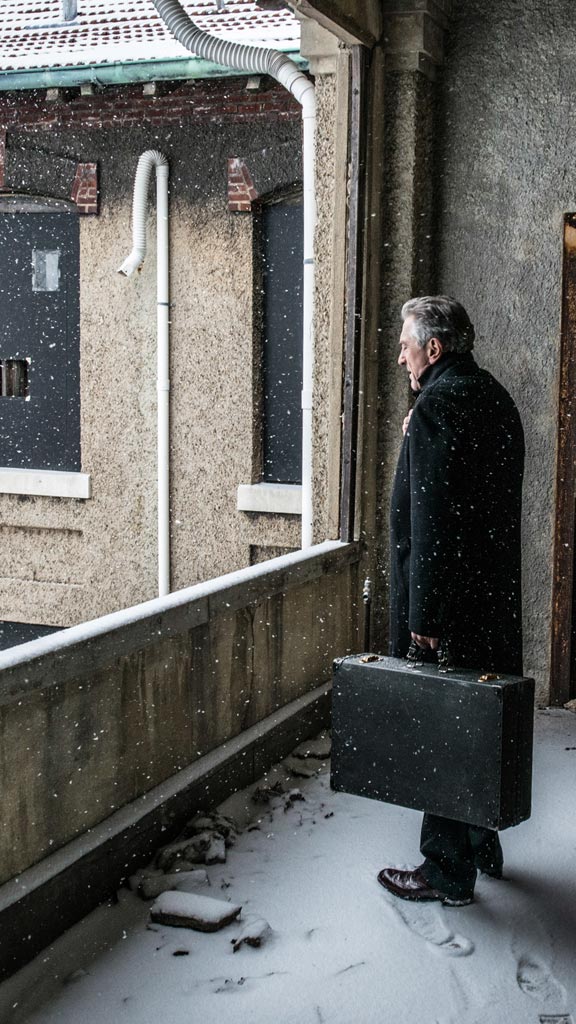

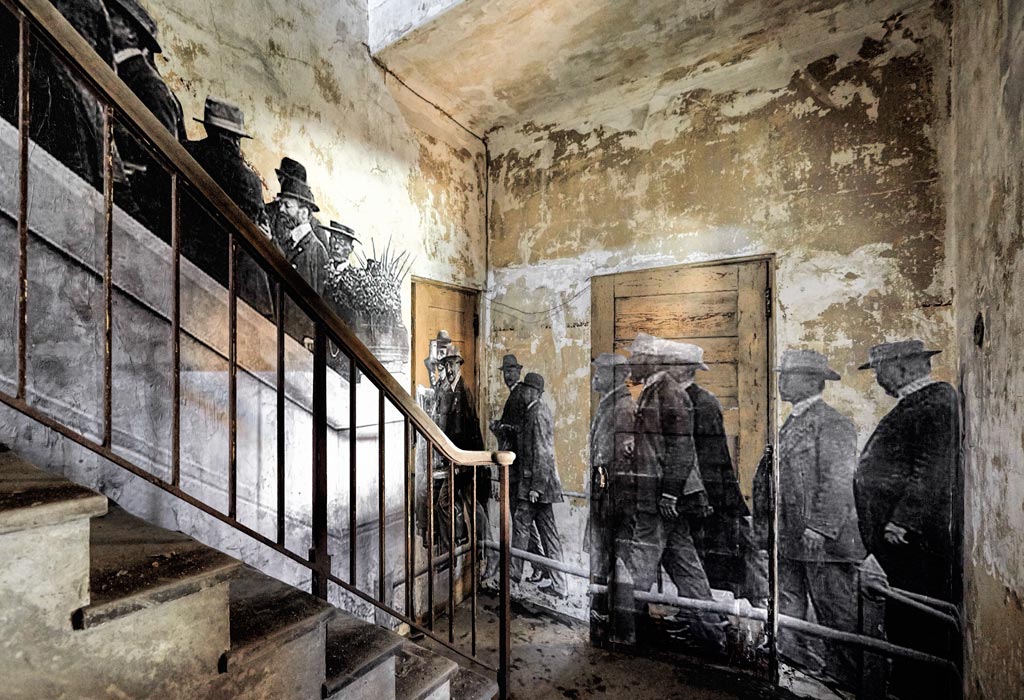
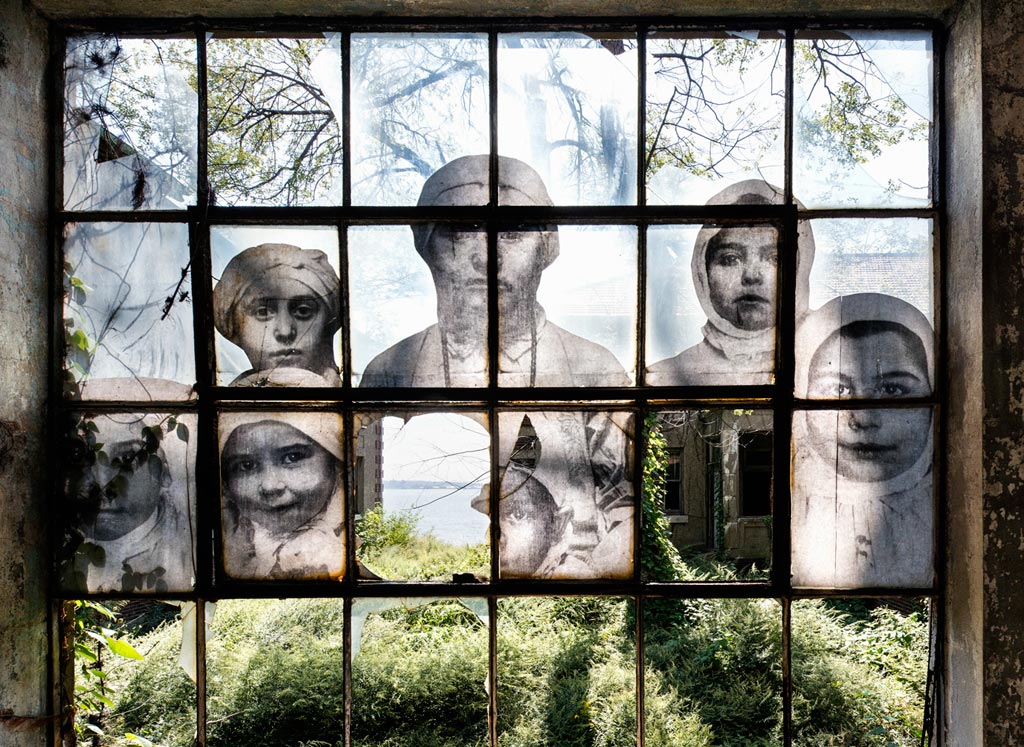
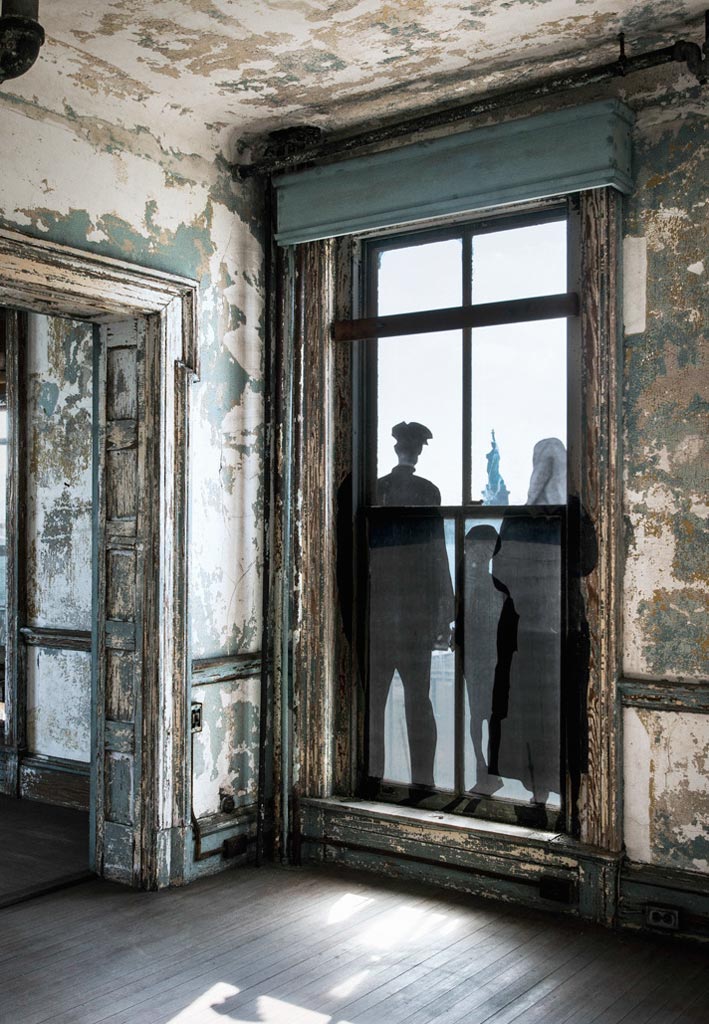
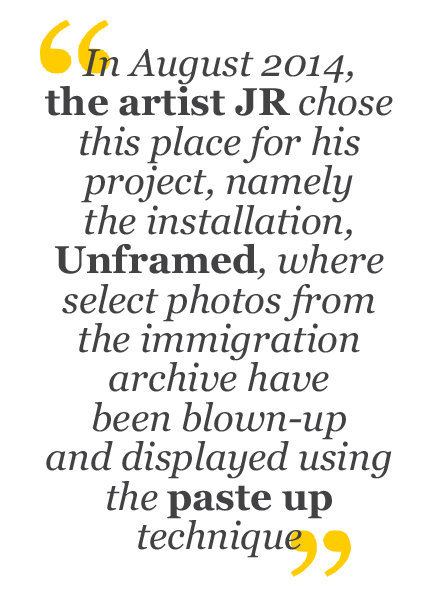
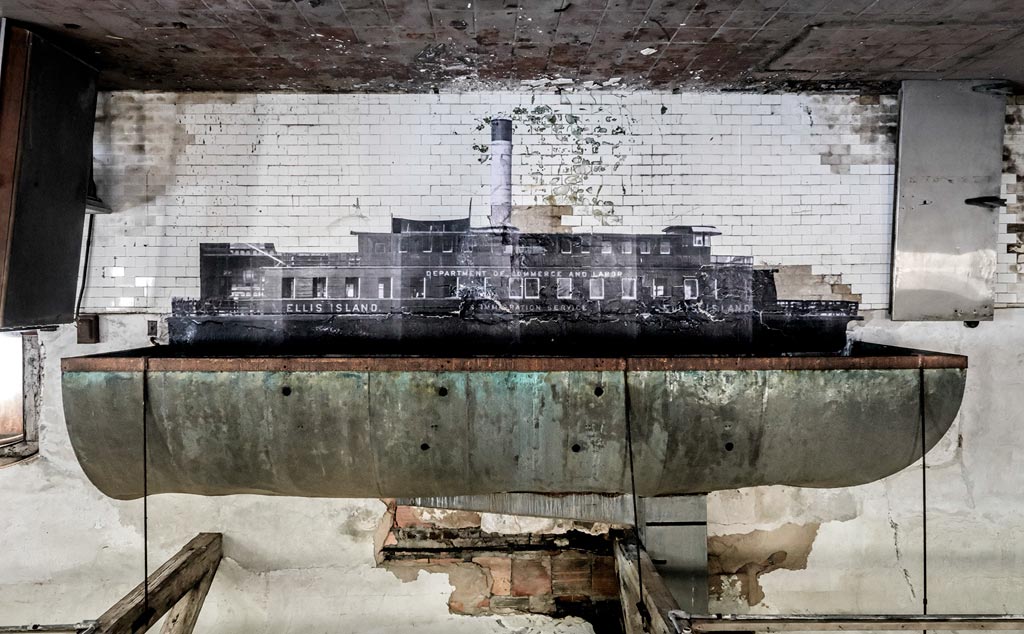
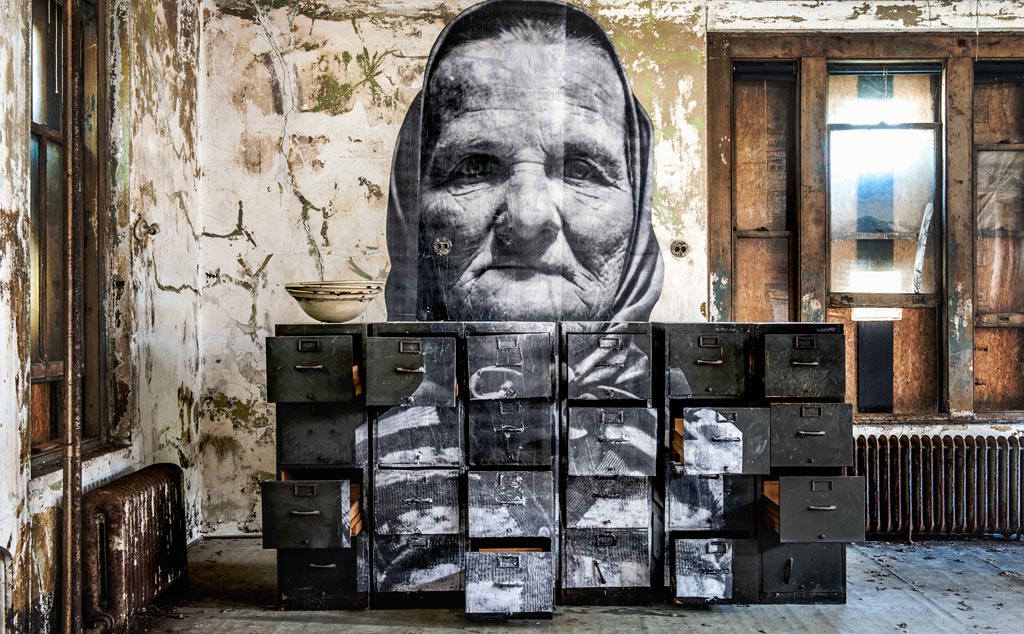
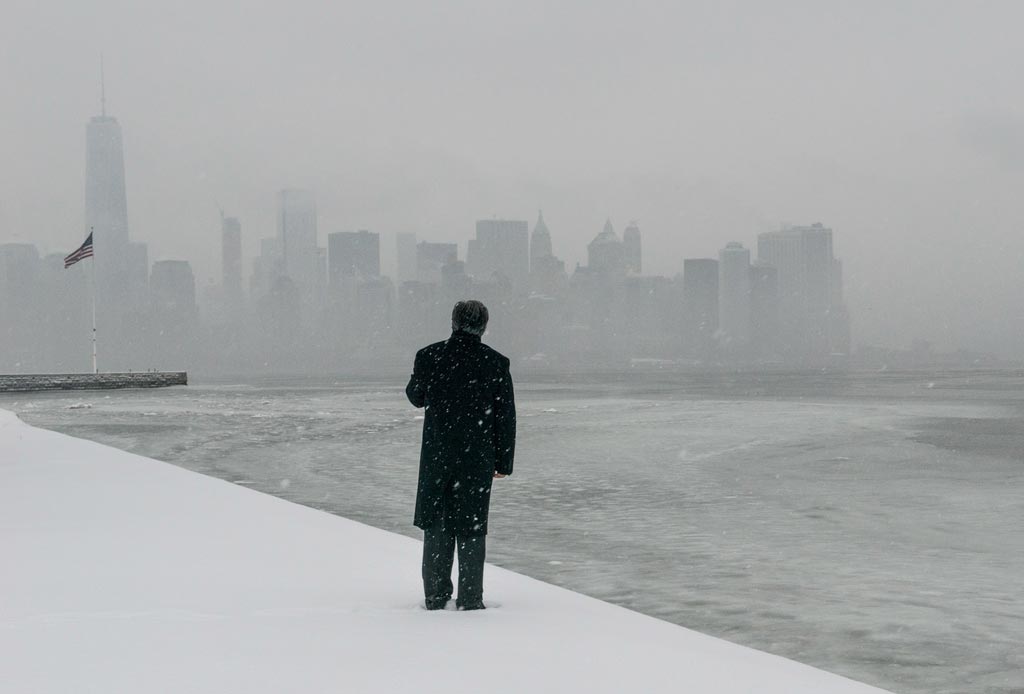

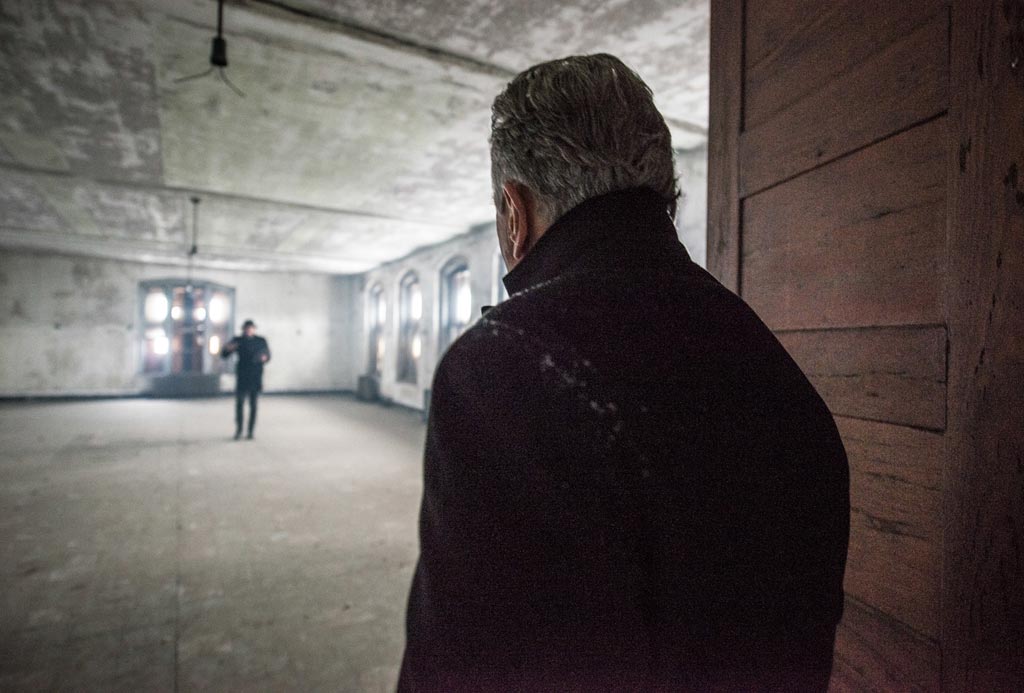
WHERE: Ellis Island, New York City
Beyond the bright lights of Manhattan and in front of its breathtaking skyline, stands Ellis Island. Between 1892 and 1954 this was the gateway to America, where millions of people eager to build a new life were quarantined. It has now been partially converted into a museum centre devoted to the history of immigration. Despite the fact that the buildings on Ellis Island are now for the most part abandoned and in decay, they nevertheless have become fascinating ruins that echo their own silent story. In August 2014, the artist JR chose this place for his project, namely the installation, Unframed. Famous for his installations in streets around the world, JR made dozens of portraits in huge format of pictures found in the archives of Ellis Island and placed them (using the paste up technique) within the complex. Everything else was left as it was: the dust on the few broken pieces of furniture, the broken glass, the vegetation that overruns what man has built. With a safety helmet and private guide, why not experience “Ghosts of Ellis Island”? This is a unique and exciting experience wandering among the architectural skeletons of an island with a famous past. The images speak of a past that still echoes into the present – it recounts the vicissitudes of men and women searching for a better future. Equally touching is the short film entitled “Ellis”. The movie, which premiered at the Tribeca Film Festival and was later screened for free around the world ( 9th – 22nd November 2015), was written by Eric Roth (Forrest Gump screenwriter), directed by JR and stars Robert De Niro. Through a masterful use of photography and an engaging soundtrack, the sequences at Ellis Island interpreted the feelings of a man who, with suitcase in hand, is literally walking through his memories.
WHERE: Ellis Island, New York City



The Moodboarders is a glance into the design world, which, in all of its facets, captures the extraordinary even within the routine. It is a measure of the times. It is an antenna sensitive enough to pick-up on budding trends, emerging talents and neglected aesthetics. Instead of essays, we use brief tales to tune into the rhythm of our world. We travelled for a year without stopping, and seeing as the memory of this journey has not faded, we have chosen to edit a printed copy. We eliminated anything episodic, ephemeral or fading, maintaining a variety of articles that flow, without losing the element of surprise, the events caught taking place, and the creations having just bloomed.